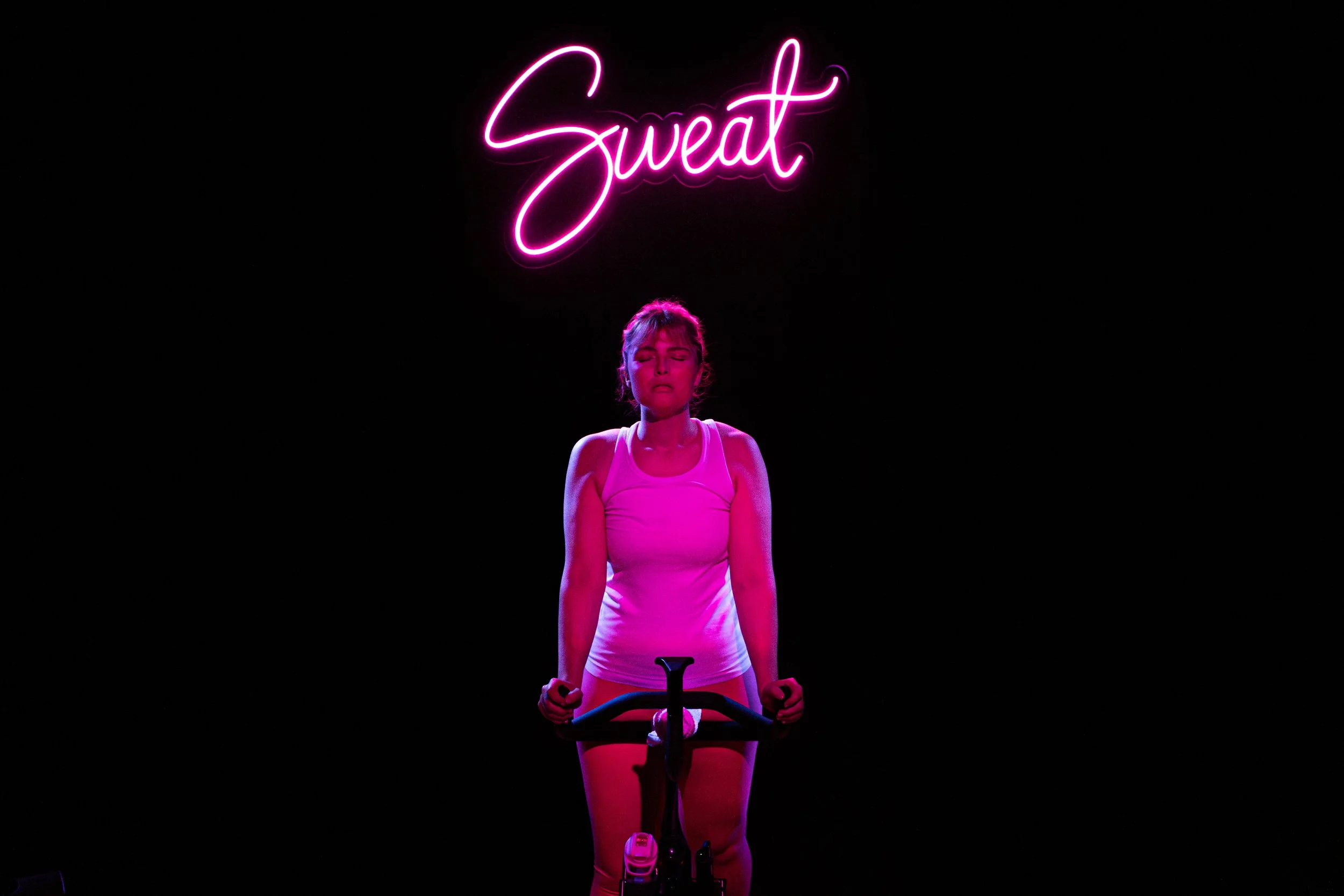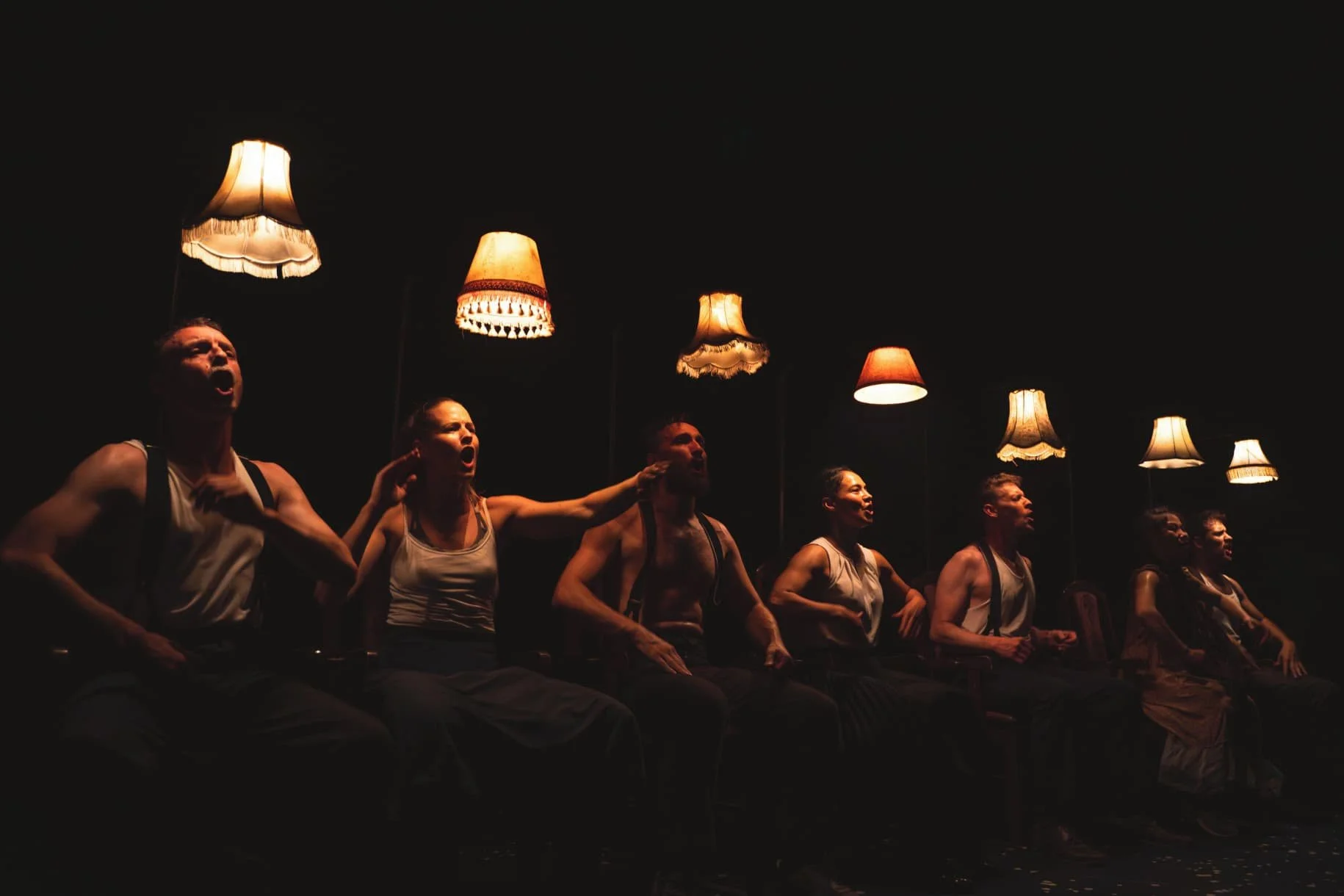Juniper Blood at Donmar Warehouse Review
Written by Liam Arnold for Theatre & Tonic
Disclaimer: Gifted tickets in exchange for an honest review
A man stands on a mound of earth. He is silent, rolling a joint, humming a folk tune. The air is thick with birdsong and the scent of grass. This is Lip, a man whose family has farmed this Oxfordshire land for generations, and in Mike Bartlett’s knotty, provocative new play, this patch of earth becomes a battleground for the soul of England itself. Juniper Blood is a fiercely intellectual, Chekhovian tragicomedy that grapples with the most urgent question of our age: how to live an ethical life on a planet in peril.
Bartlett, our foremost dramatist of national identity, trades palaces and politics for soil and subsidies. Lip (a brilliantly surly, magnetic Sam Troughton) and his partner Ruth (Hattie Morahan, exuding frayed metropolitan optimism) are attempting a regenerative, organic life on his inherited farm. Their idyll is immediately punctured by the arrival of Ruth’s prickly ex-stepdaughter Milly (Nadia Parkes) and her friend Femi (Terique Jarrett), an Oxford postgrad armed with a thesis on rural economies and a withering critique of global capitalism. Completing the party is neighbouring farmer Tony (a superb Jonathan Slinger), a blustering pragmatist who believes in chemicals, yields, and the bottom line.
What unfolds over three acts and two intervals is less a conventional plot and more a sophisticated ethical workout. The play is a symphony of clashing ideologies: Lip’s radical, back-to-the-earth purism versus Femi’s belief that capitalism can be reformed from within; Ruth’s desperate pragmatism versus Tony’s bullish conservatism, which itself undergoes a wonderfully comic mid-life crisis. Bartlett masterfully ensures no argument wins outright. Just as you side with the idealist’s vision, he reveals its terrifying fundamentalism; just as you nod at the pragmatist’s sense, its moral compromise curdles in the mouth.
Under James Macdonald’s precise, hyper-naturalistic direction, the debates never feel like lectures. They erupt from character, often over a dinner table laden with shop-bought rosé—one of the production’s many witty nods to the gap between aspiration and reality. Designer Ultz’s set is a character in itself: a looming, grassy bank and a weathered deck that feels both a part of the land and utterly separate from it. The masterstroke is Jo Joelson’s lighting, which refuses to dim, holding the audience in a shared, glaring daylight, implicating us in every difficult choice.
The performances are uniformly excellent. Troughton’s transformation from laconic observer to zealous eco-prophet is chilling in its conviction. Morahan is the play’s trembling heart, her face a map of escalating panic as her life’s investment is threatened by the very ideals that built it. Slinger nearly steals the show, finding unexpected pathos and humour in a man discovering therapy and his own feelings, lamenting, “Thought I was a disastrous prick. Turns out none of it’s my fault!”
If there’s a flaw, it’s that the intellectual rigour occasionally outweighs emotional depth. The younger characters, particularly Jarrett’s sharp but schematic Femi, sometimes feel like vehicles for argument rather than fully fleshed people. And the final act’s ambiguous conclusion, while bold, may leave some craving more resolution.
But this is a small price to pay for a play of such ambition and relevance. Juniper Blood is a compelling, often very funny, and deeply necessary piece of theatre. It understands that the climate crisis is not just a scientific or political problem, but a profoundly human one—a fracture in our stories about progress, community, and what we owe to the future. It doesn’t provide answers, but it frames the questions with rare clarity and courage. You will leave arguing, and you will leave changed.
Juniper Blood plays at Donmar Warehouse until 4 October
★★★★



















